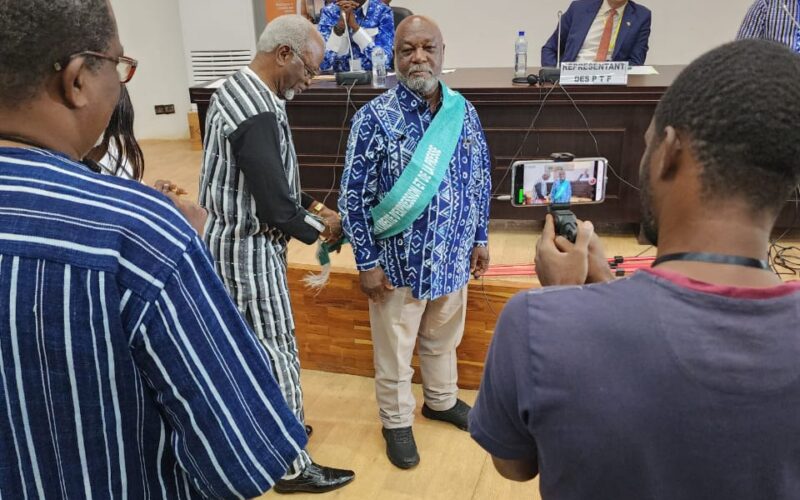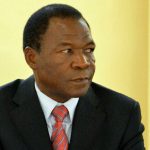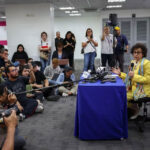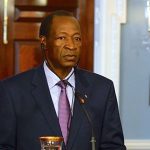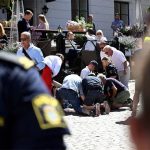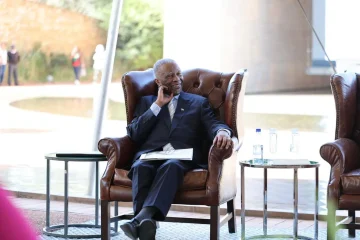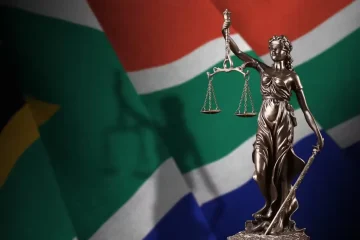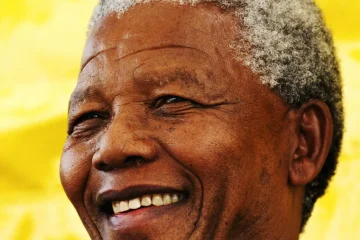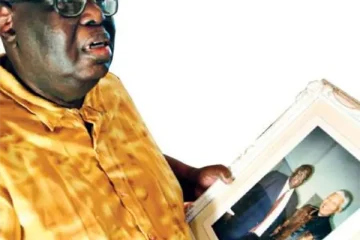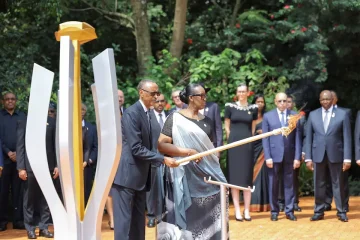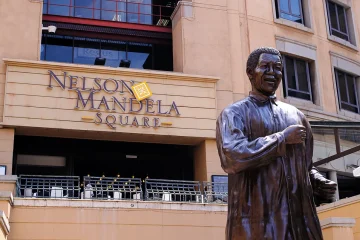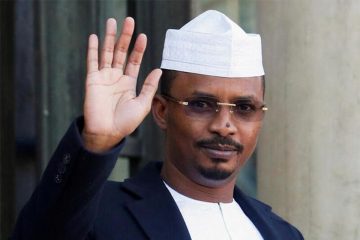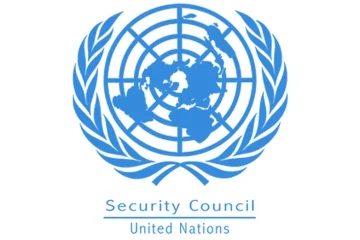KWAME KARIKARI
IN 2000, the Norbert Zongo Centre and the Media Foundation for West Africa instituted the International Festival of Freedom of Expression. But the organization of the very first event was rudely aborted by the security agencies of the government of President Blaise Compaore.
The organization of the first Festival was both a statement of protest and a declaration of the struggle for freedom of the press and of expression. It had been planned as an international protest against the gruesome murder of Norbert Zongo. And it was, above all, to demand justice for this heinous crime against a Burkinabe patriot. But the disruption of the first edition by the government was a crude affirmation of the dialectic of freedom; namely, that freedom is always a confrontation against tyranny.
But we are here today, thanks to the fortitude and persistent courage of the freedom fighters of the Norbert Zongo Centre. That we are here again, against all the challenges, difficulties and setbacks, reminds us of the endless responsibility that we owe to our people as advocates of free speech. This fight for freedom is an unending and tireless duty. The African American civil rights fighter, Flo (Florynce) Kennedy, described it best when she said:
“Freedom is like taking a bath, you have to keep taking it everyday.”
That is, there is never an end to the struggle for freedom. For the simple but frightening reason that the forces against freedom are always present, always ready and never give up to fight against the struggle for freedom.
Overview of the state of press freedom and freedom of expression in Africa The political-economic context
When we assembled here two decades ago for the first festival event, there was both hope and fear about the prospects of liberal democracy, multi-party democratic governance, press freedom and freedom of expression in our Africa. At the time, all across the continent, independent and private newspapers were mushrooming everywhere. The airwaves were stormy all over our region with private and independent radio and television stations noisily sweeping state monopoly of media into the dust bin of history.
The emerging progress in press freedom and freedom of expression, however, was one of the key outcomes of popular movement and demands for democratic constitutional governance and order. It was a new wind of change that blew all over the continent from the late 1980s, and significantly including the end of apartheid in South Africa.
In West Africa, it is important to recall, the popular movement for democratic change was first manifested in Benin with the “people’s assemblies”. But across the continent the movement was a popular rejection of the generalized conditions of human rights abuses, undemocratic governance accompanied by social and economic degradation of the post-colonial societies in the 1970s and 80s. The situation had been characterized, it has been recorded for example, by the fact that between 1966 and 1993 there were 63 successful military coups in Africa and 24 violent conflicts. At least ten million people lost their lives and about five times as many were wounded in armed conflicts. Over 20 million people became international refugees or internally displaced persons in their own countries. [Cited in, Kwesi Kwaa Prah and Tegegne Teka. 2003. Chasing Future. Africa in the 21st Century – Problems and Prospects. Cape Town, CASA]
Yet, against the hopes of progress raised in the later 80s to early 90s by the popular demands for democratization, political crises of various dimensions were erupting all over again around the continent in the early years of the 21st century.
Civil wars and other violent conflicts had broken out in a number of countries: from Algeria, Chad, Somalia, through Sudan, the two Congos, to Sierra Leone, Liberia, Cote d’Ivoire and elsewhere. Elections, which were considered to be the foundational pillar of multi-party constitutional governance, were a major source of the disputes and conflicts. But other factors, such as religious intolerance, inter-ethnic animosities, and above all poverty and social-economic deprivations stoked the flames of violent conflicts.
One of the key demands of the movement for constitutional democratic governance was multi-party elections. It was such a strong force that both the African Union and governments in West Africa were compelled to endorse it.
Thus, it is recorded that, within the two decades of 1989 and 2007, there were 140 parliamentary and presidential elections in 43 countries. They included most of the countries in West Africa. [Marie-Soleil Frere, 2011, Elections and the Media in Post-Conflict Africa. Votes and Voices for Peace?]
Around the time of the festival, on 21st December, 2001, at a summit in Dakar, ECOWAS heads of state endorsed the idea of multi-party elections as a central pillar of democracy. So they adopted the Supplementary Protocol on Democracy and Good Governance. The Protocol provides for far-reaching principles and comprehensive recommendations for the conduct of democratic elections. It affirms the central and strategic importance of the media in the conduct of free, fair and transparent elections, and provides for media freedom by unequivocally stating in Article 1(k): “The freedom of the press shall be guaranteed.”
But it is instructive that the preamble states that the Protocol was adopted for many reasons including: “increasing incidence of conflicts caused by religious intolerance, political marginalization and non-transparent elections”.
Today, these same factors and others threaten democratic governance, stability, peace and social cohesion in most of Africa. Democratic governance is under attack threatened by: corruption; economic dependency and escalating poverty and inequality; arbitrary manipulation of constitutional rules on presidential tenure; creeping attacks on democratic principles and norms; rampaging human rights violations; growing intolerance and suffocation of press freedom and freedom of expression; foreign subversion of national sovereignty and extremism.
In nearly all cases, efforts at building constitutional democratic governance have been undermined by political elites who have shown little commitment to democratic principles and values. Political parties have served as vehicles for corruption, ethnic division, subversion of the rule of law, nepotism in public office appointments, and promotion of personal interests. Not only are elections manipulated to serve the purposes of incumbent parties; almost no elections anywhere have been beyond controversy and suspicion of fraud. Elections have become a do-or-die contest among the elites for the control of national resources.
This is why periods of elections are also moments of extreme tension, fear and anticipation of violence. But it is not, however, democracy that has failed Africa. It is the elites of our countries who have failed the people; it is the elites who have failed to uphold the principles of democracy, the dignity of the people and to safeguard and fulfil the promise and vision of independence and social progress.
Conflicts in Africa
Today, the continent faces multiple sources of threats to peace, stability, democracy and social and economic development and progress. Some regions or parts of Africa, such as countries in the Horn, continue to be bogged down in longstanding violent conflicts. On a continental scale, however, extremism and its terrorist violence appears to be the single most critical threat to peace and stability. This threat became more pronounced and escalated after NATO, led by the United States, murdered Libyan leader Muamar Qaddafi, destroyed and laid Libya to waste and chaos, and rendered the country as a haven for criminality and a staging post for international terrorism.
The theatre of current extremist onslaught stretches from Algeria, the Sahelian states from Mauretania, Mali, Burkina Faso, Niger, Nigeria, through Central African Republic to Mozambique in the south. But everywhere else, the same threat of escalating and wanton violence looms ominously. No region or country in Africa is spared this threat mayhem. The most remarkable and disturbing lesson from the struggle against extremist violence, or terrorism, is that, it has exposed the state in Africa as lacking the capacity to protect its citizens from external aggression. So, on top of the continent’s economic subordination to international capital, the state in Africa has had to submit to dependency on external powers to protect the peace of their citizens.
Coups d’etat
In recent years, and more especially in West Africa, the complexities of the fight against terrorism, combined with the absurdities of flawed elections have brought about major reversals in the progress of democratic governance. Coups d’etat in Guinea, Mali, Burkina Faso, Niger and Gabon have raised alarm about the sustenance of constitutional multiparty democratic governance. For the populations, the return of military rule raises fears of a return to the years of gross abuses of citizens’ rights, arbitrariness and the absence of the rule of law.
In some of these countries, however, the new military regimes are riding on the wave of popular opposition to French neocolonial domination. This provides an image of anti-imperialism which appeals to many Africans. How sustainable and reliable this anti-imperialist posture is only time will tell. Meanwhile, demands from sections of civil society in those countries, and pressure from regional and international blocs such as ECOWAS, AU and the UN, for return to civil constitutional government continue to mount.
Whether the military regimes will yield to these demands in good faith is yet to be seen. But it is important to reckon with the fact that military rule can never be a permanent form of government; for the simple reason that it is never a democratic representation of the governed. Therefore, how a return to constitutional representative political rule will be attained; whether that will bring about progressive democratic results that respond to the genuine needs and demands of the people; a progressive democratic outcome shall depend on the extent to which the broad sections of the population, including especially poor and working people, are involved in the processes of democratization.
The main factors that threaten peace and stability are:
- Violent extremism and civil strife
- Enhancing and sustaining democratic governance and a culture of democracy, and
- Economic and social problems, that is, poverty and extreme inequalities
- All are interlinked and the economic and social challenges are fundamental to each of them. In 2003, for example, a World Bank study posited that, “the main cause of civil wars is poverty, not commonly blamed ethnic or religious divisions….” [Quoted in Prah and Teka, 2003. Cape Town] This ought to be applicable today, though the conflicts manifest themselves as ethnic divisions, religious sectarianism and, these days, partisan political animosities.
At the centre of the struggles and demands for democracy is the question, what form and nature of governance and political organization and management of society in our countries is best suited to effectively:
unite the people in the fight against violent extremism;
- Promote peace among the people against the inherent divisive tendencies and external agencies of discord and divisiveness;
- Enhance and protect the rights and freedoms of citizens and their communities;
- Create conditions for advancing economic progress and independence, satisfying the basic material and social needs of the people and systematically eliminate poverty; and, as a believer in Pan Africanism,
- Promote and foster unity of the African peoples and governments that encourage and strengthen the attainment of these ideals and objectives.
We have experienced various shades of military rule in almost every country. Very few countries have not had a coup d’etat since independence in the 1960s. In about the last two decade we have experienced a variety of challenges of constitutional multiparty government. It is time now that all citizens who are committed to peace, democracy and progress begin to raise and reflect on questions about the political organisation and direction of our countries.
No one individual, group, organization or sector of the population can have, or should assume that they alone can have, the answers to these weighty and complex questions. It demands the participation of all citizens in this quest for answers. That in turn requires that there are conditions that allow for the effective and uninhibited involvement of citizens and their organisations in the search for the way forward for progress.
So, for anyone and everyone who considers themselves as African patriots who seek the progress and peace of our peoples, in order to pursue the search for these answers, we are compelled to make a demand for the essential object of this festival: freedom of expression.
In all this, what is the media’s role?
When it comes to citizens’ engagement in public affairs, the mass media are the institutional channels for free speech and freedom of expression, specificallypress freedom.Yet, press freedom, and therefore freedom of expression generally, is usually the first casualty when democracy is threatened or aborted, and when conflict of any type erupts. The flames of civil wars have consumed journalists and media houses; terrorists have passed death sentences on journalists and bombed out media houses; dictators and tyrannical regimes have banished free media practice and imposed a culture of silence on society. The casualty list is too long to repeat here.
So, what is to be done for the media to play its true functions:
- Of facilitating the citizens’ engagement in public affairs and public life; ii.) of creating free forums for citizens’ discourses to find answers to the critical questions that confront our societies;
- Of uniting the people in their struggles for peace and security; iv.) of promoting dialogue and public education so as to advance social and economic development; and
- Of promoting and protecting the rights and freedoms of citizens and their communities.
These are questions for media leaders and advocates of peace and democracy to ponder over. These are some of the questions I propose that this festival may grapple with.
The conditions under which we live and perform our functions today are dangerous, complex and unpredictable. The hopes and promise for freedom and democracy are systematically slipping away. The forces arrayed against these ideals and principles are many, vicious and determined. Yet, we cannot run away.
Our resolve is simply because of the dangers these forces represent to the future of our Africa.
Therefore, our first resolution is to affirm our resolve to continue to struggle for the freedoms that brought us here together, and in honour of patriotic citizens such as Norbert Zongo. But we must not be reckless. We must fashion mature and sophisticated methods and strategies that will unite our populations behind us.
To attract and sustain the peoples respect and solidarity, our media and journalists must uphold and deepen high professional standards and ethical behavior. Too many of our media organizations are of poor quality and easily succumb to practices that betray the high values of the profession.
The media houses in our countries must create conditions for improving and strengthening cooperation and collaboration with counterparts across borders. Our local media are poor in providing coverage of events and issues going on in countries next across our borders. The situation gets worse when it comes to collaboration and coverage of events and issues across the colonial linguistic borders of Anglophone-Francophone-Lusophone.
Our media must show improved interest in the agencies, institutions, activities, projects and programmes or our regional and continental organisations, such as the African Union, ECOWAS, etc. This is very vital so we can participate effectively in providing ideas, opinions and proposals to shape their policies and progress. And so that we can educate our citizens in making good use of the facilities and programmes they provide, such as for example, the ECOWAS Community Court.
We must revive and strengthen our professional and advocacy organizations. That is the only way by which we can strengthen our resolve to promote the freedoms and rights we live by. It is imperative that our organizations take initiatives to build unity through cooperation, collaboration and coalitions with other civil society organizations that bring together people of all professions and communities.
Let me end by leaving you with this slogan: Don’t agonize, organize! Don’t mourn, organize!
Professor Karikari is a Member, Board of Directors, Media Foundation for West Africa, Accra, Ghana.. This is an edited version of his keynote address to the 10th edition of the International Festival of Freedom of Expression (FILEP), in Ougadougou, Burkina Faso.

